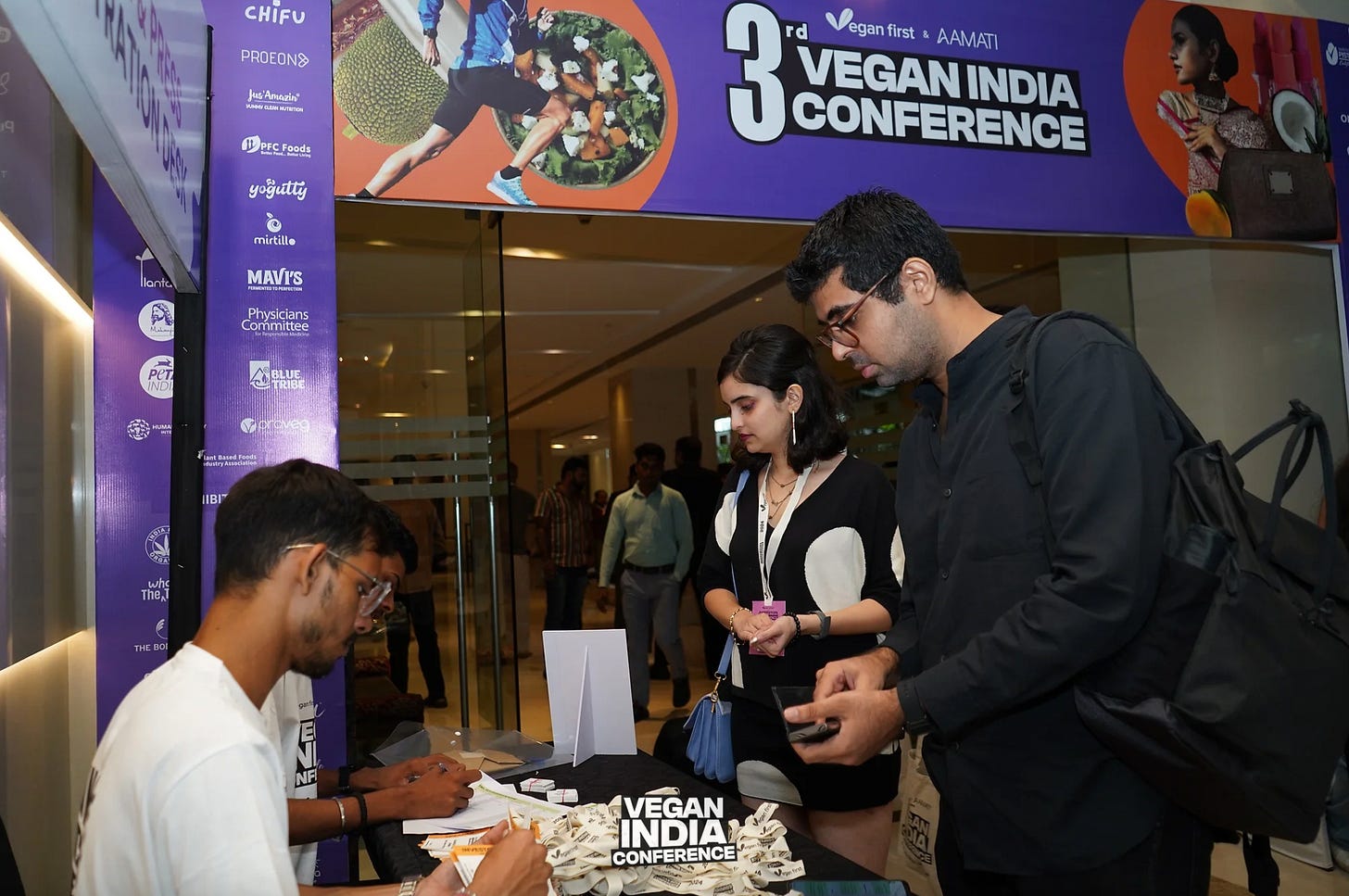I miss Bombay and the people I met at the Vegan India Conference (by VeganFirst and the Startup Ignite in collaboration with Humane Society International India). After a long time, I met so many climate optimists and people who are trying to find solutions —some are doing this profitably and some innovatively. At the heart of it, yes, some grifters see opportunities in this, but I found many who have the right heart & soul. I tend to see more of them as small business owners. Many of them are family businesses. I don’t know exactly what to do, but I want to see these small business owners become big through organic growth and prudent cash flow management. To me, small family businesses are the best alternative to the non-profit model to cater to the community.
In the luster of startups, Shark Tank dumb shit, there are several thousands and millions of small businesses, primarily family-owned provide the backbone of the economy. We celebrate growth startups but not those small businesses that exist to provide the most employment. It hit me pretty hard when I was at the Vegan India Conference this time. Do we have the right financial products to help decouple our dependence on animals? I firmly believe our dependence on animals is very much intertwined with our daily existence - from food, materials, and pharmaceuticals to personal care; everything we consume impacts the lives of animals and biodiversity overall. I conclude that venture capital financing is not suitable for everyone in the private market, and every business shouldn’t even think about becoming a venture-backed startup.

There is beauty in keeping the business family-owned and focusing on prudent cash flow management. These small businesses can serve fresh oat milk / plant-based milk to several 1000s to millions of people in a district to a city (to their local community) - an alternative to a dairy farm. They don’t need to set up a retail brand. Similarly, an ice cream brand that sells locally via a cart, ice cream bar, or through food apps / quick commerce. We need local kinder versions of butcher shops that serve several kinds of fermented & unfermented new-age proteins (that come from plants & not animals). Imagine protein shops » selling silken tofu, seitan, lentils, tempe, soy protein chunks, and more. I envision a future that doesn’t necessarily rely on scalable brands & biotech solutions but a whole local ecosystem to provide cleaner, healthier, and kinder alternatives. The solutions are based on practicality and making healthier, kinder, and cleaner food attractive. I envision a world wherein these alternatives to animal sources are not alternatives but are mainstream, alternatives that are not based on the hype of Oatly & Beyond Meat.
I need to do more to activate the small businesses built to last and exist for the next 100 years, not just 18 months. Can we have 100s of small businesses built sustainably with bootstrap money scaled to produce USD 10 million in revenue? I fundamentally believe we can and we should. But that means going back to basics - away from the shiny hype of VC money & selling a Ponzi of 1 billion dollar potential.
A while back, I wrote a piece on my other Substack, IDEX, covering topics such as leadership and conscious capitalism; I brought up this point about Shinise—an attractive de-growth model that keeps the business small and makes it last forever.
We need small businesses that grow 20% annually, and if we do 20-30 years of compounding, we can achieve significant financial and impact results. When rushed and scaled aggressively, however, we are more susceptible to failure, which leads to detrimental impact results. I don’t know. I wonder today when I see small businesses emerging in a space that didn’t even exist a few years ago to make this world better for humans and animals. We can do better if we decouple our dependence on lust, money, and hunger for power.
I want to shout out to FOUR small brands:
TWO by couples who have built them profitably and sustainably. Nomou—everyone needs to try their ice cream, and Jus Amazin—try their gluten-free flour and protein bars.
I think 1.5 Degrees is on to something—he genuinely thinks differently about how the Indian audience should consume plant-based and plant-sourced products.
PROT, previously called Seaspire, is figuring out how to make the business profitable and grow organically, focusing on building vital business metrics.
What do you think? I would love to hear more. I wonder if we can build a revenue share fund for family-owned small and medium enterprises that operate profitably with a 20% organic growth & prudent cash flow management. I don’t have answers. I am left with more questions. This is not in the purview of a VC fund I am part of. Beyond Investing, set up by my colleague & mentor, Claire - is a multi-asset management firm focused on applying an animal-free lens to investing - ideally, we want to provide innovative capital solutions to accelerate the transition to a kinder, cleaner, and healthier world.
I dream of seeing hundreds and thousands of small businesses building a kinder world. For that, we need a kinder and gentler economy rooted in conscious capitalism.
Sign-off for humanity,
Sagar Tandon
Follow me on LinkedIn» https://www.linkedin.com/in/sagartandon/
Mail me at » sagar@beyondimpact.vc
Stay humble, stay curious 🌟🌟🌟!
Note: These are my personal opinion.




